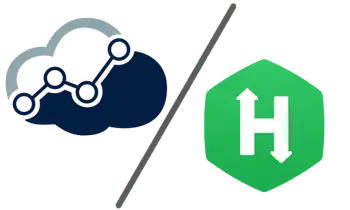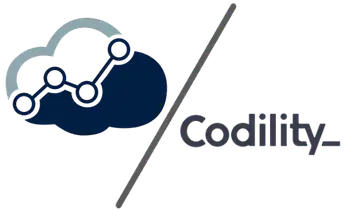Alooba Assess vs SHL

Any time you’re looking for a new product to solve your problem, we realize that the comparison process can be a little confusing, especially if you’re not an expert in the field. There’s a lot of buzzwords floating around and it’s hard to separate the wheat from the chaff.
This quick article explains the main differences between Alooba Assess and SHL. Got questions? Feel free to contact us here.
Alooba Assess is unique, being the only skills assessment platform tailored specifically to data skills. That is the fundamental difference between Alooba Assess and all other products that you might be evaluating.
There are hundreds of psychometric testing platforms on the market. One of the leading psychometric testing platforms is SHL. So you might be asking, what’s the difference between Alooba Assess and SHL?
This article is for you.
Looking to assess your candidates for data roles? Get started now with Alooba Assess.
What is Alooba Assess?
Alooba has several products. Alooba Assess is used by organizations to assess the skills of data candidates and is the focus of this comparison article.
What are the similarities between Alooba Assess & SHL?
Let’s start with the similarities between the two platforms.
Alooba Assess & SHL are both assessment platforms that organizations use to improve their hiring process. Structured assessments are proven to be a strong predictor of job performance, and offer a level of objectivity that CV screening & interviews do not.
What’s the difference between the types of assessments that Alooba and SHL offer?
Alooba Assess is a skills assessment platform tailored specifically for data skills.
In skills assessments, candidates are presented with various types of tests with questions that are relevant to their role. For example, for data analyst roles, it’s really important to be able to wrangle & clean data, do basic statistical analysis, interpret charts and query databases. These would all be sensible skills to assess a data analyst for before hiring them, to ensure they have the skills to do their day-to-day job well. These are all skills you can evaluate with Alooba Assess.
SHL, on the other hand, offers traditional psychometric tests. Broadly speaking these fall into two categories:
- Measures of aptitude/cognitive ability such as inductive reasoning, numerical reasoning and verbal reasoning. In simple terms, these are intelligence or IQ tests. In general, IQ is a strong indicator of on the job performance, and these types of tests go back to WW1 when they were used by the American military in selecting and training their recruits. They are used as an objective and fair measure of candidates.
- Personality surveys. These measure peoples’ personality traits which give you an indication of how people typically respond in certain situations. There are various different types of personality surveys, with the leading one being the Big 5 Personality Model, also known as the OCEAN model. OCEAN is an acronym as it spells out the 5 personality traits that people are bucketed into: Openness, Consciousnesses, Extroversion, Agreeableness and Neuroticism. For example, someone might be described as high on agreeableness and low on neuroticism. This means they tend to be friendly, nurturing and conflict avoidant (agreeable), and also do not get anxious or experience a lot of negative emotion (not neurotic).
The intelligence tests are used as a screening tool in hiring, while the personality survey is normally used to provide additional information about the candidate and understand how they will fit into the team.
Which skills do organizations use Alooba Assess or SHL for?
This is one of the fundamental differences between Alooba Assess and a psychometric testing platform like SHL.
With Alooba Assess you can assess a range of more than 50+ skills relating to data.
With SHL, you don’t measure skills at all. Instead, you measure intelligence or personality type. That’s why intelligence tests are quite common for graduate & intern hiring, because graduates typically come as a blank slate without any measurable skills per se, but plenty of potential.
Here’s a list of the current skills that you can evaluate with Alooba Assess vs SHL.
| Skill | Alooba Assess | SHL |
|---|---|---|
| Analytics Management | ✅ | ❌ |
| Analytics | ✅ | ❌ |
| Apache Spark | ✅ | ❌ |
| APIs | ✅ | ✅ |
| Business Acumen | ✅ | ❌ |
| Chart Interpretation | ✅ | ❌ |
| Data Analysis | ✅ | ❌ |
| Data Governance | ✅ | ❌ |
| Data Literacy | ✅ | ❌ |
| Data Management | ✅ | ❌ |
| Data Modelling | ✅ | ❌ |
| Data Science | ✅ | ❌ |
| Deep Learning | ✅ | ❌ |
| DevOps | ✅ | ❌ |
| Digital Marketing Analytics | ✅ | ❌ |
| Functional Programming | ✅ | ❌ |
| Google Analytics | ✅ | ❌ |
| Hadoop | ✅ | ❌ |
| Internet Security | ✅ | ❌ |
| Java | ✅ | ❌ |
| JavaScript | ✅ | ❌ |
| Machine Learning | ✅ | ❌ |
| Microsoft Excel | ✅ | ❌ |
| Natural Language Processing | ✅ | ❌ |
| Neural Networks | ✅ | ❌ |
| Object-Oriented Programming (OOP) | ✅ | ❌ |
| Product Analytics | ✅ | ❌ |
| Programming Concepts | ✅ | ❌ |
| Python | ✅ | ❌ |
| Quality Assurance (Testing) | ✅ | ❌ |
| R | ✅ | ❌ |
| Relational Databases | ✅ | ❌ |
| Reports & Visualisations | ✅ | ❌ |
| Scala | ✅ | ❌ |
| Software Development Life Cycle (SDLC) | ✅ | ❌ |
| Source Control with Git | ✅ | ❌ |
| SQL | ✅ | ❌ |
| Statistics | ✅ | ❌ |
| Systems Architecture | ✅ | ❌ |
But wait, shouldn’t we hire smart people?
Yes, that is a good strategy in general, and so measuring intelligence as part of the hiring process makes sense. It’s simply that the results of these tests do not tell you anything about the candidate’s current skills and knowledge, and therefore does not tell you if they can do the job today.
To put it another way, a high school student and a seasoned professional of 10 years might score the same on an IQ test. However, the high school student is probably not going to be the right person for your Head of Analytics role.
Which roles do organizations use Alooba Assess or SHL for?
This is one of the main differences between Alooba Assess and SHL. Alooba Assess is typically used for data roles.
The most common roles Alooba Assess is used for are data analysts, data engineers, data scientists, product analysts, BI analysts, BI developers, marketing analysts, etc.
Meanwhile, SHL is used for graduate and intern roles, and occasionally in large enterprises, potentially any role. They’re generic and not specific to a domain or function of a business.
Is it legal to hire based on IQ?
This really depends on the jurisdiction. In some countries such as the United States, it is not legal to recruit using psychometric tests that measure IQ. Note, this does not constitute legal advice.
What seniority of roles do organizations use Alooba Assess or SHL for?
Alooba Assess is used from entry level roles (e.g. Junior Data Analyst) all the way through to senior management roles (e.g. Head of Data Science).
SHL is typically used for graduate and intern roles, and some organizations (especially large enterprises in some markets like the UK and Australia) also choose to apply them to all positions in their organization.
Can Alooba Assess be used for all roles in an organization?
While Alooba Assess is mainly used by organizations for data specific roles, actually some of our more forward thinking clients now use an objective Alooba Assess data literacy assessment for all their hires.
They understand the critical place data literacy has in their organization now and in the future. Every role is becoming more data-driven, and so there’s an expectation that every role has a basic data literacy skillset, needed to make informed decisions each day.
Can I use SHL to assess data roles?
You could use SHL to assess a candidate’s intelligence, which is a solid predictor of their future potential to do data & analytics roles. However, it doesn’t tell you anything about their current skills & knowledge in data, which is what Alooba Assess measures.
Where in the hiring funnel do organizations use Alooba Assess vs SHL?
There are two main places to use Alooba Assess.
First, right at the top of the funnel, as a substitute for manual CV screening. Manual CV screening is known to be inaccurate and biased against people from certain ethnicities. Any manual process is also expensive and bogs down the hiring process, increasing the time to hire. 95-99% of candidates get rejected at the CV screening stage, and this is where the biggest bias and problem is in hiring. This is the best place to use Alooba as it impacts every candidate.
Second, as a replacement to take-home projects. Take-home projects, while a good predictor of a candidate’s ability to do the job, place a huge burden on both the candidate and the organization, and lead to a lot of dropoff in the hiring process. Not only do the take-home projects need to be created and maintained, they then need to be administered for each candidate. This involves cumbersome sharing of the project and back-and-forth instructions/assistance, and then the grading process. This is typically around 30-60 minutes per candidate, and normally involves senior individual contributors like senior data scientists. This again blows out the hiring costs, increasing the time to hire and creates drop-off in the hiring process.
SHL is used in various places in the hiring funnel, and it’s really up to the organization. For graduate & intern hiring, the intelligence tests are typically used right at the start of the process, as a fairly blunt force screening tool. This is necessary, organizations would argue, because the volume of candidates is enormous, often in the 10s of thousands or 100s of thousands, depending on the organization. A cutoff score will be used, and anyone scoring above that would make the assessment centre day.
Meanwhile, the personality surveys would typically be used at the end of the hiring process, not as a screening tool, but more as a way to understand how the candidate would fit into the organization.
What about assessing my team or organization?
Organizations use Alooba Growth to assess the data literacy capabilities of their team & people. Alooba Growth helps them to identify skills gaps in their teams, and assess the efficacy of their learning & development exercises.
SHL’s intelligence tests are not used to assess existing employees.
What about assessing juniors & graduates?
Organizations use Alooba Junior to assess their graduates and interns for crucial data literacy skills.
SHL’s intelligence tests are commonly used to assess juniors and graduates for their potential ability.
When is Alooba Assess not the right choice?
The first step is admitting you have a problem, and so not every organization is ready for objective hiring. Alooba Assess is used by modern, forward-thinking organizations that recognize the need for change. They understand the biases in manual CV screening, traditional unstructured interviews and ‘cultural fit’ sessions, and have made a conscious decision to make their hiring process data-informed and objective.
If you’re not ready and committed to creating an objective and fair hiring process, we are probably not the right partner for you.

